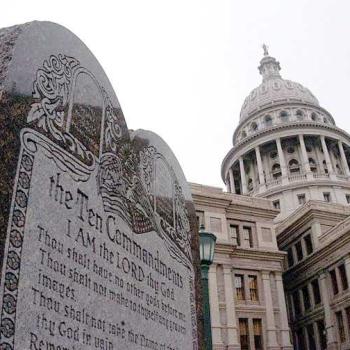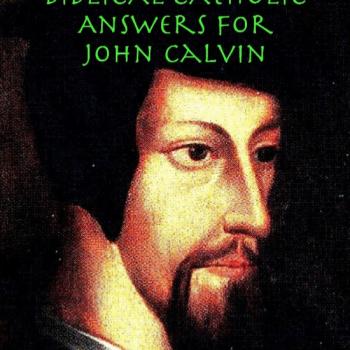In that moment, my friend, who is more Quaker than Catholic, instinctively began to pray the Hail Mary, focusing on the second phrase: Holy Mary, Mother of God, pray for us sinners now and at the hour of our deaths. Later she told me, "I thought that only Mary knew what it was like to lose a son in service to God." And so, in this hour of death, it was Mary she called on for focus, strength, and comfort.
One of the most powerful images in Christian art is Michelangelo's Pieta, the statue of the sorrowful Mary (the mater dolorosa, as the Church calls her)cradling her dead son. If Mary was indeed present at Jesus' death, then it certainly could be true, and certainly, throughout the centuries, suffering women and men have believed that Mary knew and understood their pain.
When we consider this spiritual lesson, we derive both comfort and challenge. Comfort because Mary can be a figure who stands with us in times of trial, a soul companion who has walked this path ahead of us. She can remind us that while life is difficult, and certainly contains tragedies, we must hold onto our faith. Her own story shows us that despite losing her beloved son, she did not turn away from God or from the teachings her son had died to bring the world. After his death, we find her among the faithful, and the author of Acts considered her an important figure at the launching of the Church.
But Mary challenges us because in this office the Virgin is also an example of how we might hold space for others and be their companion when life seems too much to bear. A walking, talking, breathing friend may be the difference between life and death—or between despair and hope—in many cases, and Mary teaches us this most Christian of lessons.
Giving Voice to Justice
Mary was not wealthy or highly-placed. She was not blessed among women because of any qualities she possessed except her great faith. But in saying yes to God, she realized that she was becoming a part of the great inversion of all things God had planned. In her prophetic song we now call the Magnificat, Mary praised God for what God was initiating in the world:
He has used the power of his arm, he has routed the arrogant of heart.
He has pulled down princes from their thrones and raised high the lowly.
He has filled the starving with good things, sent the rich away empty. (Lk. 1:50-52, NJB)
Kathleen Norris suggests a devotional practice based on the Virgin that includes central spiritual lessons from her life. "Like Mary," she says, "I am invited each day to bring Christ into the world in my prayers, thoughts, and actions. And each evening, as I pray the Magnificat, I am asked to consider how I have done in this regard." This would be a wonderful prayer practice: beginning the day by inviting God to use us to give birth to Jesus in all we do and say, and examining ourselves at day's end to see how we have aligned ourselves with the God who chose Mary and exalted the meek and lowly.
Next week we'll close our Lenten reflections with a discussion of spiritual lessons from the Franciscan tradition. Until then, may we be faithful as Mary was faithful, and may God be with us all.





